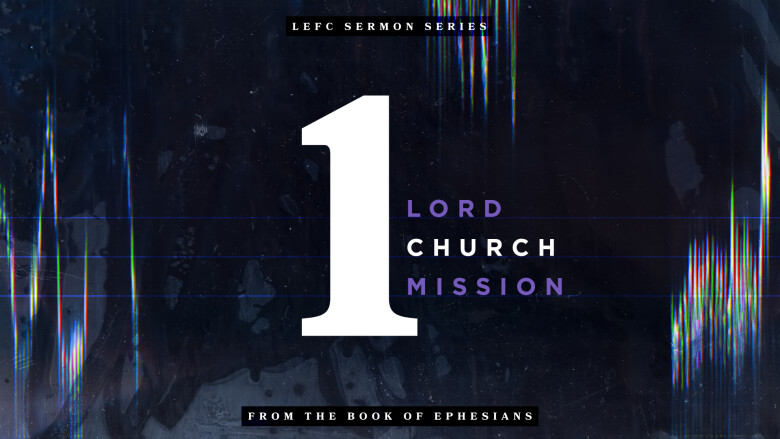One
Harvest in the Workplace
CLICK HERE FOR THE ENGAGE GUIDE CONTAINING DISCUSSION QUESTIONS
Read Ephesians 6:5-9
doulos- slave, bondservant, an unpaid servant that is bound
kurios- master or lord. “…earthly master”
Does the Bible advocate for slavery or does it condemn it?
- The Bible does not explicitly license or condemn it.
- Several types of slavery: captive, fugitive, indebted, blood, sex…
- The Bible gives guidelines to both slave owner and slaves that protect human dignity.
- The Bible teaches that all people are created in His image and are equal in his eyes.
- These truths imply that slavery is a human construct of human brokenness that God liberates us from in the gospel of Jesus Christ. (Philemon and Onesimus)
American History with the legalized institution of slavery.
- Between 1525-1866 there were 12.5 million Africans stolen from their homes and shipped around the world. Nearly 2 million died at sea. 388,000 arrived on North American shores.
- In the 1860 US Census there was an American population of 31.4M of which 3.9M were African slaves.
- Just like the States, slavery was condoned or abhorred by the Church depending on whether the church was in the North or South.
- Both the Northern and Southern church based their views on Scripture.
How is this possible? Does this still exist?
*Illustration- In 1990, a SBU mentor shared with me his view on slavery. He viewed the Bible as supportive of it. I disagree completely!
The Church under the gospel.
- God created all people in his image.
- We are created equal in inheritance, favor, standing, and in liberty.
- We are created with unique responsibilities and roles to serve each other in the church and at home.
- All people regardless of ethnicity, gender, or social standing will be standing and declaring Jesus as Lord.
Galatians 3:26-29 “So in Christ Jesus you are all children of God through faith, 27 for all of you who were baptized into Christ have clothed yourselves with Christ. 28 There is neither Jew nor Gentile, neither slave nor free, nor is there male and female, for you are all one in Christ Jesus. 29 If you belong to Christ, then you are Abraham’s seed, and heirs according to the promise.”
- Despite human brokenness all of those found in Christ will be enjoying eternity together without our presuppositions or hindrances.
Interpreting Ephesians 6:5-9
- It is the third relationship spoken to in the text that encompasses the household.
- Husbands and wives. [Image: Oikos logo]
- Parents and children.
- Masters and slaves as slaves were considered part of one’s household.
- The primary aim is to glorify and proclaim Christ in these relationships.
- This is accomplished by living as Christ lived in the context of each of these relationships.
- These principles are to be applied in any context where there is one who is under authority of another and for one who is in authority over another.
Modeling Christ to the one who is in authority. Ephesians 6:5-8
- Attitude- respect, fear, sincerity. (5)
- Approach- Model Christ in work ethic while seen or unseen by supervisors. (6a)
- Motive- The way we serve Christ, and our supervisors should be from the same heart of pleasing God. (6b)
- Perspective- By serving our supervisors with “all-in” attitude we are serving Christ. (7)
- Desired outcome- the Lord rewards the goodness of people regardless of role in society.
Modeling Christ to those we oversee. Ephesians 6:9
- The same charge is given in our workplace relationships in Christ-like attitude, approach, motive, perspective, and desired outcomes.
- We are not to be threatening to them, but to provide safe environments for them to thrive as human beings inspiring them towards Christ.
- Warning to the Supervisor in caring for those they oversee—God does not behave as human beings where we value each other based through the broken human construct of partiality.
- This verse is why I believe that slavery is a human construct not divinely created one.
Jesus is the game changer for healing that which has damaged human relationships.
- The law was limited to providing protective rules for slaves, but it could not heal.
- In Christ he can provide the healing that the law is incapable of doing.
Communion
Questions that guide:
What if our goal as an employee was to lead our boss to Jesus? What would change in your approach to your job and those you work with?
What if your goal as a business owner, business leader, or supervisor was to lead to Jesus those who reported to you? What would change in your approach to how you lead?
Could the next harvest begin in the workplace? How would this change your prayers?
Series Information

Ephesians is dripping with deep and meaningful truths to cling to and particularly applicable to today. While we have certainly experienced more division in our country, in Christ oneness can be found. The unity of the Trinity is deeply sown into the DNA of those who are following Jesus Christ. The work of Christ not only ties us altogether in the present but it gives us unity of purpose as move forward into the future.
